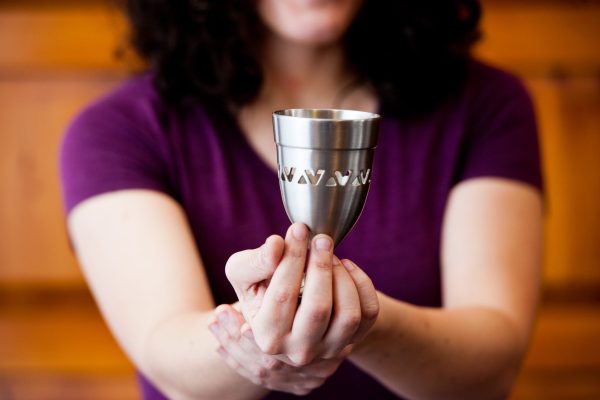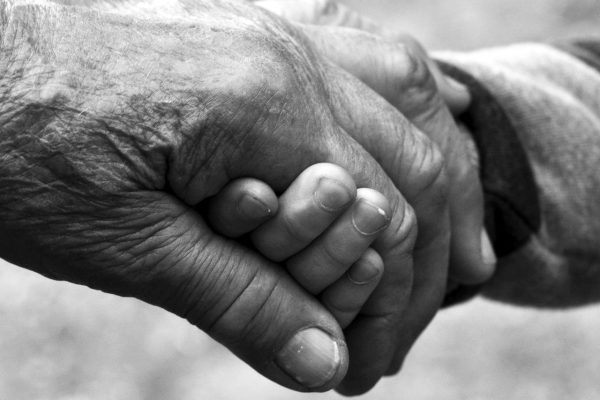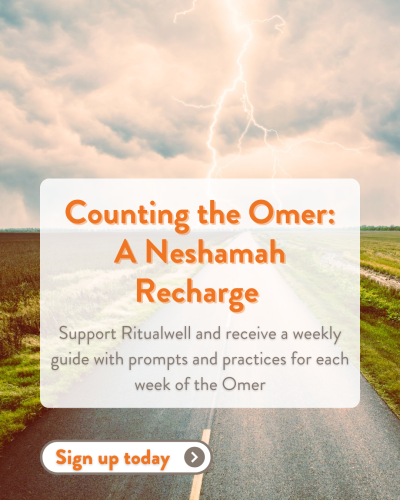We have lit the candles and set sacred time and space. We have drunk the first cup of wine, and dipped our greens in saltwater. Now we focus on the matzah, which symbolizes not only the affliction of slavery but also the potential for transformation.
Ha lachma anya—
This is the bread of affliction our ancestors ate in the land of Egypt.
As we go through the seder, the matzah will be transformed. It will cease to be the bread of affliction and it will become the bread of hope, courage, faith and possibility.
And it begins with a breaking.
YACHATZ: Breaking the Matzah
Reader:
Each person is invited to hold a piece of matzah, to mindfully feel its weight, notice its color, its shape and texture.
Resting the matzah on our open palms, we remember that the Passover story teaches that oppression and suffering result from fear and the unwillingness to open one’s heart to the pain and the experiences of others.
It was fear that brought about the enslavement of the Israelites and it was the hardening of the heart that kept the Israelites, the Egyptians and the Pharaoh in bondage. From fear and a hardened heart came violence, anguish, and grief.
(One person lifts the plate of three matzot. We all take a moment of silence and then call out the beginning of the prayer):
Ha lachma anya—
This is the bread of affliction our ancestors ate in the land of Egypt.
We return to silence and each raise up a piece of matzah.
We maintain silence while all, at the same time, break our matzot in half.
We listen to the sound of the bread of affliction cracking open.
As we hold the two pieces in our hands we set an intention to break open and soften our hearts:
All:
May our eyes be open to each other’s pain.
May our ears be open to each other’s cries.
May we live with greater awareness.
May we practice greater forgiveness.
And may we go forward as free people able to respond to ourselves and each other with compassion, wonderment, appreciation, and love.
(We place the matzah back on the plate and continue the prayer):
Let all who are hungry come and eat.
Let all who are in need join us in this Festival of Liberation.
May each of us, may all of us, find our homes.
May each of us, may all of us, be free.
Later in the seder, after we have told the story, we say the blessing over the matzah and prepare to eat it for the first time. We take a moment and acknowledge our capacity for healing and love:
Reader:
Every time we make a decision not to harden our hearts to our own pain or to the pain of others, we step toward freedom.
Every time we are able to act with compassion rather than anger, we stop the flow of violence.
And each moment we find the strength and courage to see ourselves in each other, we open possibilities for healing and peace.
This is the bread that we bless and share.
All:
May all who are hungry come and eat.
May all who are in need join together in this Festival of Freedom.












